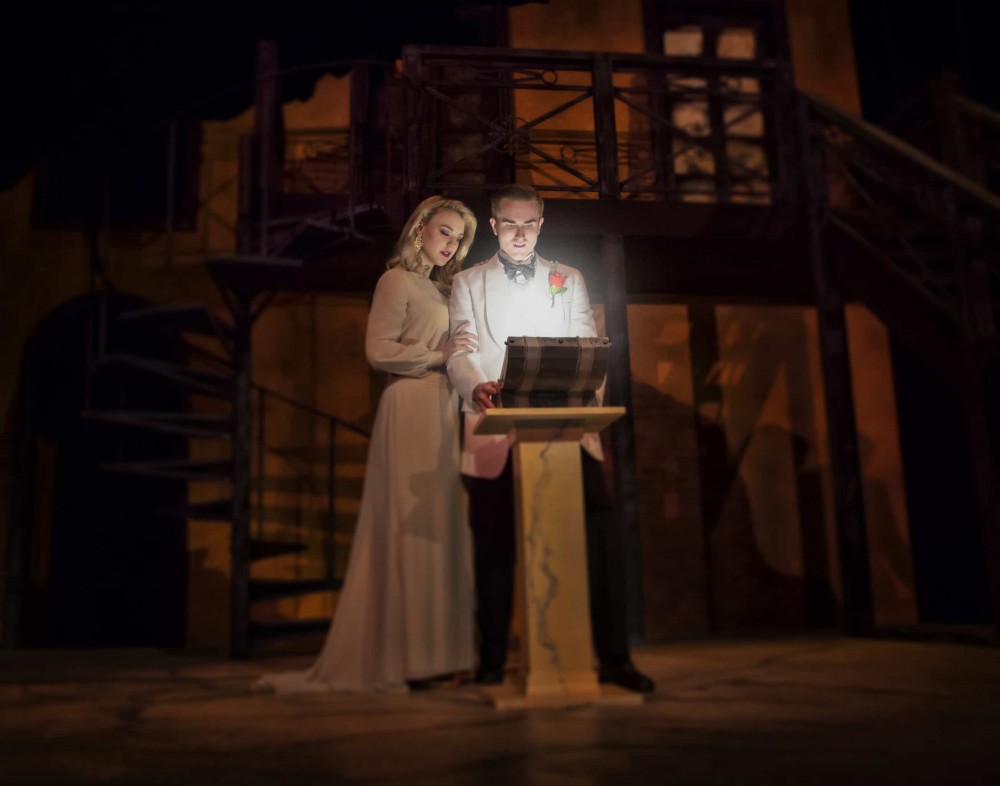The Arizona Repertory Theatre (ART) kicked off its spring season with a rendition of “The Merchant of Venice,” a Shakespeare play that commentates on hard-hitting issues such as discrimination and anti-Semitism.
The play follows interactions between a Jewish man, a Protestant merchant and their serious money loan agreement. When things go south paying back the loan, the merchant must be prepared to give it all to the Jewish man.
RELATED: ‘The King and I’ comes to UA’s Centennial Hall
Although the dramedy does not solely focus on religion, the show frequently calls into question the amount of mercy each man is able to demonstrate in order for a life to be spared or changed forever.
Director Brent Gibbs says he feels this show is a wonderful opportunity for students to work on a play that deals with serious issues, but incorporates beautiful language and inspires revelatory thought regarding the dignity of human beings
“It’s a good show to put on in our current [political] climate,” Gibbs said. “It has a lot of resonance in many issues we still have around today … People who like to see material handled in a professional way will love this show.”
Connor Griffin, who plays the character Shylock, said he felt honored to play this role.
“Getting to work on this text in this environment is such a blessing,” Griffin said.
Griffin had to ease into a role that was so vengeful. Playing a character that is so grounded in religiosity can be difficult to present in a non-discriminatory way.
RELATED: Hindu culture expressed on UA campus
Because Shylock is Jewish, many other characters in the play looked down on him, causing Shylock to channel resentment towards others.
Kelly Hajek, who plays the character Portia, said she appreciated the opportunity to work with the complexities of the characters.
“Finding Portia’s own sense of mercy towards Shylock was the challenging part to me,” Hajek said.
The whole cast expressed their love for working on this show in its entirety, from the first casting in November to finally performing on stage this month.
“We’re so lucky to have such a hard-working and dedicated group of people around us,” Hajek said. “Without that work ethic I don’t think it would be possible to put on this show.”
The ART hosts one Shakespeare play per year. Producing such classic shows for students and the public draws people in to see how the material will be handled.
Getting to work on complicated texts in a learning environment helps students expand their acting range for a stronger portfolio and greater opportunities in future shows.
Although it may be difficult at times to work through the language differences and slightly discriminatory innuendos, actors are rewarded with experience.
“We almost cut out one of Portia’s lines because it’s racist,” Hajek said.
Not excluding certain facets of the show helps keep audiences aware of real issues instead of just ignoring them; exploring issues present during Shakespeare’s time proves to not be so different than today.
“Shakespeare still speaks to us after all these years,” Gibbs said. “[It] can still instill a sense of wonder.”

Follow Daily Wildcat on Twitter









